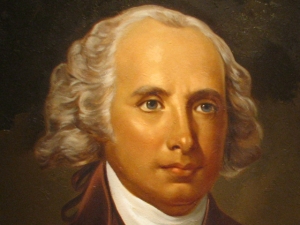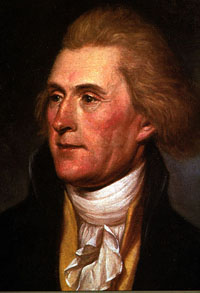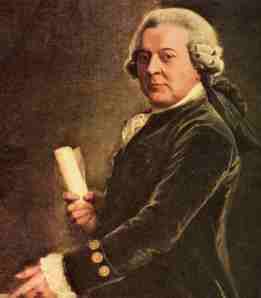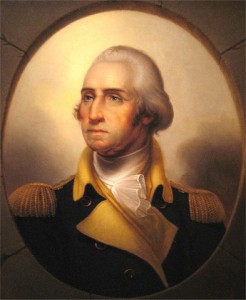 The duty of government is to leave commerce to its own capital and credit as well as all other branches of business, protecting all in their legal pursuits, granting exclusive privileges to none.
The duty of government is to leave commerce to its own capital and credit as well as all other branches of business, protecting all in their legal pursuits, granting exclusive privileges to none.
Andrew Jackson
Andrew Jackson is one of my favorite Presidents. Jackson’s Indian Removal Act, ownership and right to own slaves politics keep him from the top of my list. Despite the blemishes of an over zealous race supremacist, Jackson had a great deal going for him. First Jackson was one of the founding members of the Democratic Party, which purpose was suffrage to allow even non landholders to vote. Then, of course, Jackson refused to charter the Second Bank of the United States, and finally Jackson believed that the president was the only representative of all the people and therefore should make choices to the benefit of all.
I have to focus myself today on the banking specifically. (I could write 3 articles at least on Jackson) Today the United States is in a precarious position, we bailed out, and allowed major banks to merge, forcing them to become “Too Big to Fail”, We’re faced with a “Great Recession” and possibly a world crisis as European banks begin to fail, and the weight of the welfare states of Italy, and Greece drag the rest of the European union down. We have a banking system built upon a Federal Reserve which is neither controlled by congress, nor even allowed to be audited by congress. The Right is pulling ever more Conservative as the Tea Party vents frustrations over our own welfare state, the bailing out of banks, and what they perceive as a move towards a socialistic economy. The Left meanwhile attempted to galvanize with the Occupy Wall Street Movement, moving into public spaces and attempting “pure democracy”, all this over big banks, corporate bail outs, and what they perceive as a move towards a Corporatocracy.
So, whats the solution? Ending the Fed? Returning to the Gold Standard? Regulating the Market more? Should we dump more money into the recovery hole? Are we supposed to tax the rich more? end the loopholes in the taxation process?
There are a lot of questions, and a lot of theories out there. Sometimes what seems best is in fact a short route to ruin. Oh, certainly we don’t want the rich getting richer, but we don’t want our country living with a deficit so large it can never be paid off. (Btw Andrew Jackson was the only president to pay off our national debt, and give us a surplus) I’ve been studying the economy more and more recently, of course there is the Keynesian model- keep money flowing no matter what! and the Hayek model which is basically to tell the government to GTFO of our economy and let it flow naturally. There is thought that Welfare allows for more purchasing power in the bottom class, and therefore more of an ability to move upwards. And then there is discussion that when you give the poor money they don’t ever work to not be poor.
It’s also challenging to even begin to understand what our monetary system should be based on. Gold worked out well, but even gold has its inherit flaws being an inelastic currency. Fiat Currency also has advantages, it can be expanded when needed, and therefore it can be injected into the market, through bank loans. The question comes down to why we need an elastic currency, is it due to population growth? Is it due to lending practices? When you come to understand economy, you come to understand banking (We should all just join Credit Unions BTW) See, the Fed doesn’t always make the money, in fact the Fed is a reactive branch of government increasing or decreasing it’s supply in order to balance with the loans that have been made by other banks. ok, here is what I’ll do, I have found a few interesting videos I’ll post in here so you can get an idea what I’m talking about.
Beyond that, what’s my point? I bring up a LOT of questions, and there aren’t always answers, but this is what I’ve seen. I have heard a great many people saying they want more regulations on banks, and in an economy based upon a Federal Bank controlled by private individuals why wouldn’t we? Andrew Jackson didn’t like banks, and so he refused to sign the charter on the Second National Bank, in turn it became a state bank, and currency became the realm of the individual bank. With each bank printing it’s own currency and very little oversight a bubble grew, and in 1837 it burst. After a recovery the banking system stabilized, and voila we had a working free banking system- actually OK, we didn’t. see now that the bubble had burst, most banks were chartered by the separate states, with up to 700 chartered banks at one time! Now banks were regulating themselves, and some of them were lending improperly, guess what?
Just like with our situation those banks were in danger of failure, but the federal government did NOT step in and save them. so banks failed a hell of a lot more often, but this was advantageous, see with such a high failure rate, few banks grew to any meaningful size, and those that did, did so because their managers were responsibly lending. Now this instability wasn’t exactly the best thing for the consumer, after all you could have money in your pocket and within 24 hours it could turn into worthless paper. Some regulation is in essence necessary, but how much? the more we regulate, the harder it is to become a bank, or on the business side, it becomes harder to start a company, and with tax loopholes, and licensing fees, small business are bound to fail when going up against corporate giants.
Our nation will see hard times, we can better keep those hard times from occurring not by pouring government money into the hole (which in turn only opens up a larger hole somewhere else, but by giving our banking system a nudge forcing it on its own. we will see major banks fail, we would probably see another depression, but as Andrew Jackson’s move did, it will create an economy based upon real currency, not currency created on the spot by a banking institution looking to own someone elses house- so they can later turn around and sell it for more money, any wonder why Andrew Jackson also said “I have always been afraid of banks”
 “Always vote for principle, though you may vote alone, and you may cherish the sweetest reflection that your vote is never lost.”
“Always vote for principle, though you may vote alone, and you may cherish the sweetest reflection that your vote is never lost.” “In the wars of the European powers in matters relating to themselves we have never taken any part, nor does it comport with our policy so to do. It is only when our rights are invaded or seriously menaced that we resent injuries or make preparation for our defense.”
“In the wars of the European powers in matters relating to themselves we have never taken any part, nor does it comport with our policy so to do. It is only when our rights are invaded or seriously menaced that we resent injuries or make preparation for our defense.”


